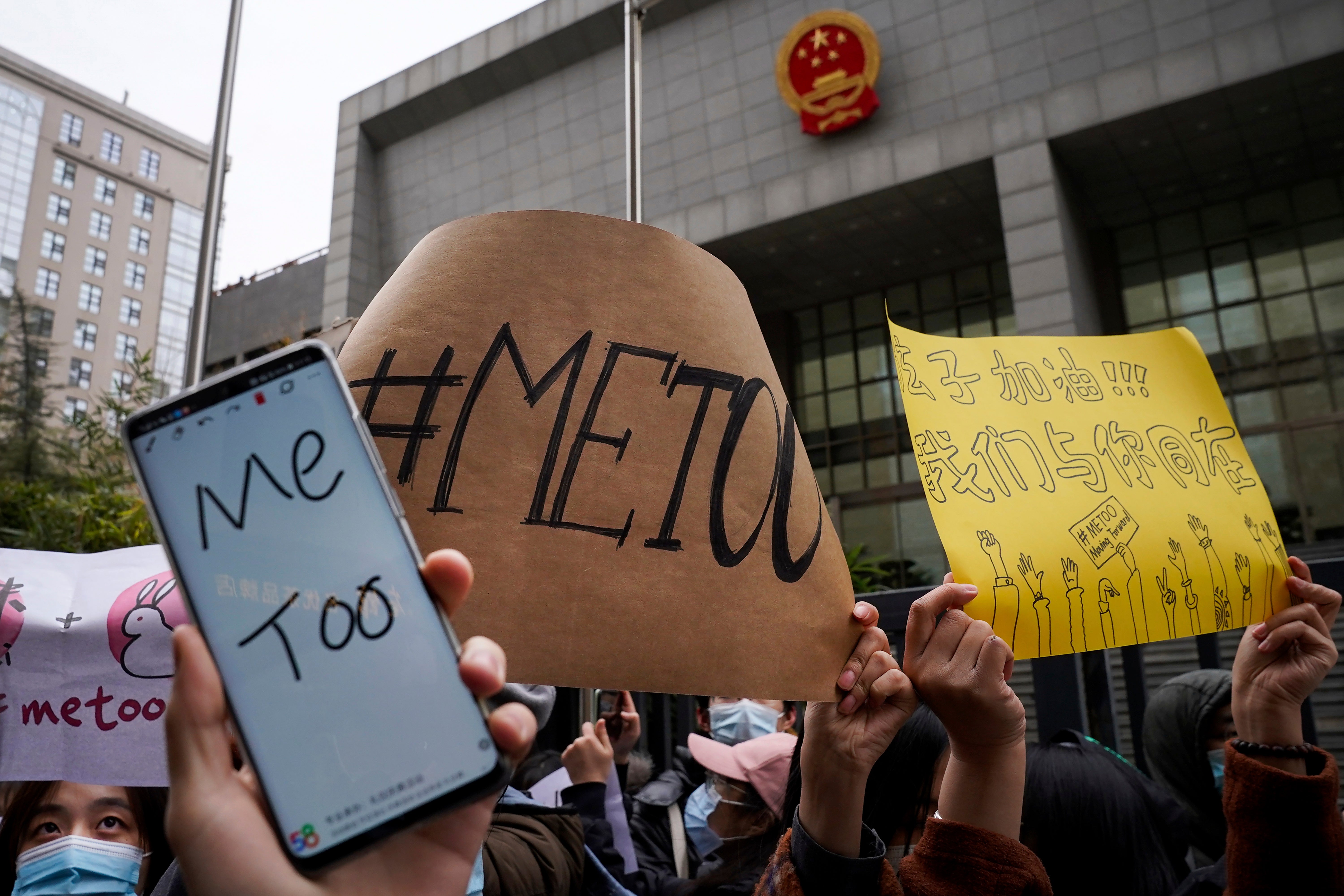China debates legislation to give women more protection against sexual harassment in the workplace
Amendment attempts to define meaning of discrimination against women for first time

China is considering introducing legislation to better protect women against sexual harassment and discrimination, according to state media.
The move comes amid growing international criticism of the country’s handling of the #MeToo movement and a perceived crackdown on high-profile victims.
On Monday, the country moved to amend the Law on the Protection of Women’s Rights and Interests.
The draft amendment will define the specific meaning of discrimination against women for the first time, reported The Global Times, the English-language outlet run by the Communist Party’s People’s Daily newspaper.
It stipulates that the country will take necessary measures to gradually improve the systems for protecting women’s rights, eliminate all forms of discrimination, and prohibit discrimination or restrictions on women’s enjoyment and exercise of rights and interests.
The draft was submitted to the Standing Committee of the National People’s Congress for deliberation on Monday.
China is currently ranked 107th among 153 countries in the World Economic Forum’s gender equality ranking.
Recent allegations of sexual harassment faced by women in the workplace have been met with abuse, legal cases and harassment for speaking out.
Even the most high-profile cases that surfaced during the country’s brief #MeToo movement in 2018 have met similar fates. In September, a court ruled against Zhou Xiaoxuan, a woman who accused one of the country’s most famous TV hosts, Zhu Jun, of forcibly kissing and groping her when she was an intern.
The case of tennis star Peng Shuai, who had made accusations against a former vice president of the Communist Party, appeared to give new impetus to the movement. Less than two months later and after seemingly disappearing from public view in China, Peng has now seemingly withdrawn her claims.
The draft amendment attempts to eliminate gender discrimination in the workplace and establish a reporting system for gender equality in enterprises.
It prohibits employers from prioritising men in recruitment processes, inquiring about women’s marital status and their willingness to get married or have children, or to undergo pregnancy tests at the application stage.
Under the draft, any comments with sexual connotations, inappropriate bodily behaviour, sexually explicit images, or suggestions of benefits in exchange for sex towards a woman without her consent will constitute sexual harassment.
It also seeks to ban violence against women through mind control, and sale and illegal adoption of girls.
Discussions are expected to continue till Friday, after which a vote on the draft is expected to take place.
Additional reporting by agencies
Join our commenting forum
Join thought-provoking conversations, follow other Independent readers and see their replies
Comments
Bookmark popover
Removed from bookmarks